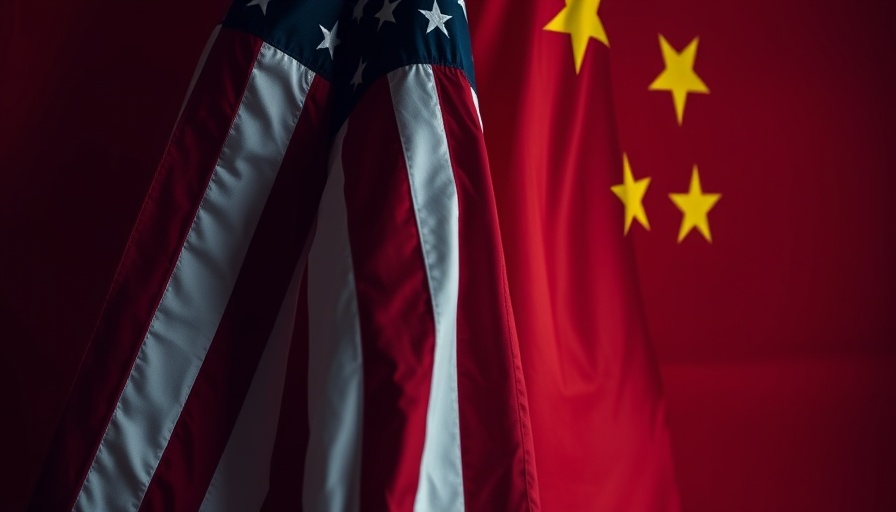
China Urges Trump to Rethink Tariff Strategy
In a significant diplomatic overture, China's Commerce Ministry called on U.S. President Donald Trump to reconsider and eliminate the controversial reciprocal tariffs on Chinese imports, currently set at a staggering 145%. This appeal highlights the ongoing tensions in U.S.-China trade relations, which have been marked by fluctuating tariffs and economic uncertainty.
Understanding the Current Tariff Landscape
The U.S. tariffs, labeled as 'reciprocal,' were designed to impose burdens on imports from China, aiming to leverage trade negotiations. However, U.S. tech giants, including Apple, have benefited from recent tariff exemptions on certain products, acknowledging these as a 'small step' towards easing tensions. The exemptions are seen as crucial for companies that manufacture extensively in China and depend on a smoother supply chain for operations.
The Impact on U.S. Taxpayers and Businesses
The ongoing tariff situation could have significant implications for American taxpayers and small business owners. When tariffs are high, the cost of imported goods often rises, contributing to inflation and increased consumer prices. This scenario can force taxpayers to pay more for everyday goods, affecting their financial health. For small businesses, understanding strategic tax deductions related to tariffs and supply chain management could prove beneficial.
Next Steps for the U.S. Government and Its Impact
Officials are evaluating the broader impact of these tariffs and exemptions, but they urge for a return to dialogue based on mutual respect. If Trump heeds China's call, the potential easing of tariffs could open doors for improved trade relations, benefiting both nations' economies. Active participation in these discussions is essential, especially for taxpayers concerned about their financial well-being and the implications of trade policies.
Final Thoughts on Trade Negotiations
As discussions progress, taxpayers should stay informed about how changes in trade policies might influence their tax planning strategies. Those looking to lower their taxes or find savvy deductions should keep abreast of these developments and seek to incorporate key insights into their financial planning. Engaging with tax professionals can help craft effective strategies to maximize deductions and streamline tax obligations, particularly in an unpredictable economic landscape.
In conclusion, while the U.S.-China tariff debate continues, it highlights the interconnectedness of global trade and domestic economic impacts. Taxpayers should remain vigilant as further developments unfold.
 Add Row
Add Row  Add
Add 




 Add Row
Add Row  Add
Add 

Write A Comment